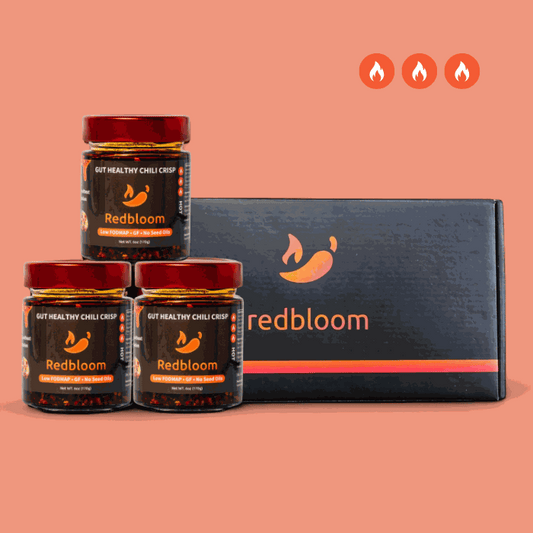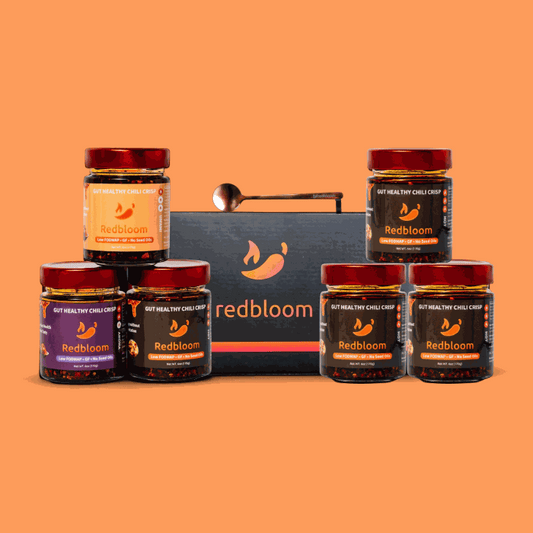What is a Habanero Pepper?
If you are a fan of spicy food, you must have heard of the Habanero pepper. It is one of the hottest chili peppers in the world, known for its unique taste and fiery flavor. In this article, we will discuss everything you need to know about Habanero peppers, from their origin to their health benefits, culinary uses, and side effects.
Origin and History
The Habanero pepper is believed to have originated in the Amazon region of South America and then migrated to the Caribbean, where it was first cultivated by the Mayans. Today, Habanero peppers are grown in many countries, including Mexico, Belize, Costa Rica, Panama, and the United States.
The word "Habanero" comes from the Spanish word "habano," which means "from Havana." This is because the Habanero pepper was first introduced to the rest of the world via Havana, Cuba.
Appearance and Taste
Habanero peppers are small, lantern-shaped chili peppers that are usually orange, red, or green when mature. They are about 1-2 inches long and 1 inch in diameter. Habanero peppers are among the hottest chili peppers in the world, with a Scoville rating of 100,000 to 350,000.
Habanero peppers have a unique flavor that combines sweetness, fruitiness, and intense heat. They are commonly used in spicy dishes and sauces, and their flavor can be described as floral, citrusy, and smoky.
Health Benefits of Habanero Pepper
Habanero peppers are not only flavorful but also rich in nutrients that offer several health benefits. Some of the health benefits of Habanero peppers include:
Rich in Nutrients
Habanero peppers are rich in vitamins A and C, potassium, and dietary fiber. These nutrients are essential for maintaining a healthy immune system, promoting healthy digestion, and reducing the risk of chronic diseases.
Boosts Metabolism
Habanero peppers contain capsaicin, a compound that has been shown to boost metabolism, increase energy expenditure, and reduce appetite. This makes Habanero peppers an excellent addition to weight loss diets.
Anti-Inflammatory Properties
Habanero peppers have anti-inflammatory properties that can help reduce inflammation in the body. Chronic inflammation is linked to several diseases, including arthritis, heart disease, and cancer.
Pain Relief
Capsaicin, the compound found in Habanero peppers, is also known to relieve pain by blocking pain signals from reaching the brain. This makes Habanero peppers a natural remedy for chronic pain conditions.
Culinary Uses of Habanero Pepper
Habanero peppers are used in various cuisines around the world, including Mexican, Caribbean, and Tex-Mex. They are often used in spicy sauces, salsas, marinades, and rubs, and can add flavor and heat to any dish.
In Different Cuisines
In Mexican cuisine, Habanero peppers are a staple in dishes like chiles rellenos, mole, and salsa. They are also commonly used to make hot sauce, which is a popular condiment in many parts of the world.
In Caribbean cuisine, Habanero peppers are used to make spicy jerk sauce, which is often used to marinate meats like chicken and pork. In Belize, Habanero peppers are used to make a spicy condiment called Marie Sharp's Hot Sauce.
Preparing and Cooking with Habanero Pepper
When cooking with Habanero peppers, it is important to handle them with care as they are very hot. It is recommended to wear gloves and avoid touching your eyes or face while handling Habanero peppers.
To reduce the heat of Habanero peppers, you can remove the seeds and membranes, which are the hottest parts of the pepper. Habanero peppers can be grilled, roasted, or used fresh in salads, salsas, and other dishes.
Side Effects of Habanero Pepper
While Habanero peppers offer many health benefits, they can also cause side effects in some people. Some of the common side effects of Habanero peppers include:
Digestive Issues
Consuming too much Habanero pepper can cause digestive issues like nausea, vomiting, and diarrhea. This is because Habanero peppers contain capsaicin, which can irritate the digestive system.
Skin Irritation
Handling Habanero peppers can cause skin irritation, especially if you have sensitive skin. It is recommended to wear gloves when handling Habanero peppers to avoid skin irritation.
Allergic Reactions
Some people may be allergic to Habanero peppers and may experience symptoms like hives, swelling, and difficulty breathing. If you experience any allergic reactions after consuming Habanero peppers, seek medical attention immediately.
Conclusion
Habanero peppers are a flavorful and spicy addition to many dishes around the world. They offer several health benefits, including boosting metabolism, reducing inflammation, and providing pain relief. However, it is important to handle Habanero peppers with care as they can cause side effects in some people.
If you are a fan of spicy food, consider adding Habanero peppers to your diet. They are a great way to add flavor and heat to any dish, and their unique taste and aroma are sure to please your taste buds.
FAQs
- Are Habanero peppers good for weight loss?
- Yes, Habanero peppers contain capsaicin, which has been shown to boost metabolism and reduce appetite, making them an excellent addition to weight loss diets.
- Can Habanero peppers cause stomach issues?
- Yes, consuming too much Habanero pepper can cause digestive issues like nausea, vomiting, and diarrhea.
- Can handling Habanero peppers cause skin irritation?
- Yes, handling Habanero peppers can cause skin irritation, especially if you have sensitive skin.
- Are Habanero peppers a good source of nutrients?
- Yes, Habanero peppers are rich in vitamins A and C, potassium, and dietary fiber, which are essential for maintaining a healthy immune system and promoting healthy digestion.
- Can people be allergic to Habanero peppers?
- Yes, some people may be allergic to Habanero peppers and may experience symptoms like hives, swelling, and difficulty breathing.
Sources
-
"Habanero pepper nutrition facts and health benefits." Nutrition and You. https://www.nutrition-and-you.com/habanero-pepper.html
-
"Capsaicin as an anti-obesity drug." Wiley Online Library. https://onlinelibrary.wiley.com/doi/full/10.1002/oby.20156
-
"Capsaicin in the Treatment of Pain: Therapeutic Potential and Mechanisms of Action." Current Neuropharmacology. https://www.ncbi.nlm.nih.gov/pmc/articles/PMC3169333/
-
"Habanero pepper." Wikipedia. https://en.wikipedia.org/wiki/Habanero
-
"Marie Sharp's Habanero Sauce." The Spruce Eats. https://www.thespruceeats.com/marie-sharps-hot-sauce-recipe-1806923
-
"How to Handle Hot Peppers Safely." The Spruce Eats. https://www.thespruceeats.com/how-to-handle-hot-peppers-safely-1807533
-
"Allergic reactions to chilli pepper (Capsicum annuum) and tobacco pollen." Clinical and Translational Allergy. https://ctajournal.biomedcentral.com/articles/10.1186/s13601-015-0073-3





